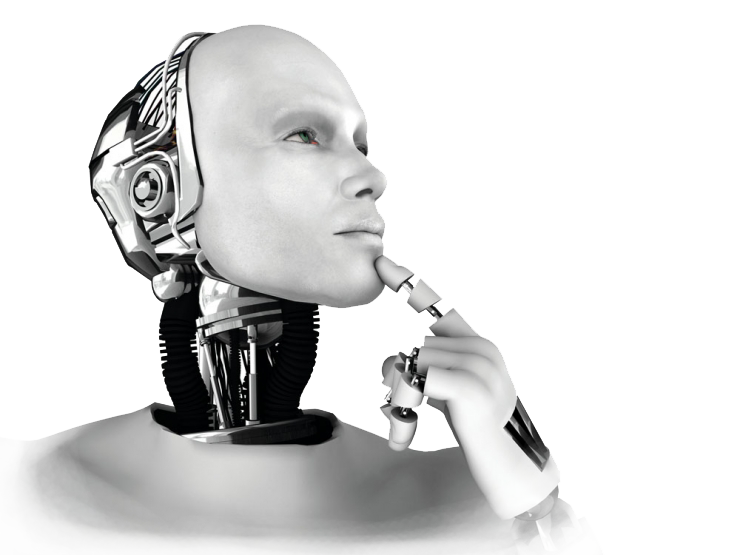
The human is a social being. He is surrounded by his fellows and must constantly interact with other people in his daily live.
We all have needs to be met. And we cannot survive in total solitude. However, we are all different, each with our preferences, our behaviours and reactions.
Often this difference creates an opposition, which in turn can lead to conflict.
But instead of making war, especially in the management field, we will see how to forge new friendships with those around us in order to succeed in our business.
In this lesson we will introduce psychology and one of its first aspects – personality.
The knowledge gained will enable us to better know ourselves, to discover our strengths and weaknesses. They also allow us to find the approach to people around us, to enjoy their aid when the latter we will need.
Psychology
Psychology is a science for understanding the behaviour of people. It offers ways to
understand our own attitudes and reactions, as well as those of others.
And also helps to make sense of our experiences and resolve problems we face every day.
It also helps to improve management practices in helping people to bring sense to their work and develop their skills.
The behaviour
In psychology, behaviour is an action or reaction, more or less complex, internalized (in the head or body) or externalized (as a way of observable being or acting).
It can be such a thought, an emotion, an attitude, an act or conduct.
Understanding the attitudes and behaviours of individuals
To understand the behaviour of a person, an attentive observer can attempt to discover past events and may thus infer rationality. It could be said that these behaviours are responses to stimuli and they aim to produce an effect.
Individuals therefore respond to requests that stimulate. Between stimuli and the desired effects, however, occur several phenomena that can not be observed directly, because they occur in a person’s head; it is the famous “black box”.
It is difficult, if not impossible, to know exactly what goes through the mind of a person when acting.
Nevertheless, we can always know what to expect and how to respond having the image of the personality of an individual.
The personality
Personality is an important concept in psychology. It helps to understand the attitudes and behaviours of individuals.
Personality is the image we have of ourselves.
The personality is built during childhood and adolescence, and continues to grow until the end of life.
There are two main ways to define the personality:
A. All observable behaviours (the image that projects a person)
B. Set of processes that explain the observed behaviour (the essential nature of the
person)
Normal personalities, difficult and abnormal
Psychosocial risks in the workplace are numerous: the pressure of deadlines, work overload, conflicts, lack of support and recognition. These risks begin to test the resilience and strength of the people, which could trigger behaviour problems or mental disorders.
The normal personality
* It is able to do things independently and effectively
* It is able to adapt to situations effectively and positively
* It is able to experience feelings of well-being and fulfillment
* It is able to fulfill its potential and actualize
Four functions are the basis of normal personality:
- coherence
- vitality
- self-awareness
- the consciousness of his environment
The difficult and abnormal personalities
The abnormality is defined by symptoms, dysfunctionalities traits, identity disorders, emotional problems, self-regulatory problems and impulse control, interpersonal problems.
Difficult personality has personality traits that are maladaptive, but it happens somehow to adjust to situations.
Difficult Personalities are usually tense, anxious and irritable.
Abnormal personality suffers from a personality disorder: it fails to adapt, either because it does not recognize its problems, either because it does not feel able to change.
Personality traits: the theory of the five factors (Big Five)
The theory of the five factors describes personality using the following factors: neuroticism, extraversion, openness, agreeableness and consciousness.
Neuroticism
Neuroticism factor means an arrangement with negative emotions. It describes how the individual becomes aware of his negative emotions, particularly sadness, fear and anger, and how it handles. Opposite of emotional stability: a tendency to easily experience unpleasant emotions such as anger, anxiety or depression vulnerability.
The extroversion
The extroversion factor concerns social relations, vitality and positive emotions. It describes how an individual becomes aware of his positive emotions such as joy and love, and how it handles. Energy, positive emotions, tend to seek stimulation and the company of others, go-getter.
The opening
The opening factor is related to imagination, openness and meta-consciousness. It describes the personality traits associated with adaptability and creativity. Appreciation for art, emotion, adventure, unusual ideas, curiosity and imagination.
The agreeableness
The factor Agreeableness relates to interpersonal patterns, style of attachment and
affiliation. It describes the personality traits associated with self-awareness and others, as well as the moral conscience. A tendency to be compassionate and cooperative rather than suspicious and antagonistic towards others.
Consciousness
The awareness factor is related to impulse control, self-control, self regulation and fulfillment. It describes the personality traits associated with the moral conscience, to self-determination and personal effectiveness. Self-discipline, compliance, organization rather than spontaneity; goal-oriented.
In our next article we will see the MBTI tool. This is the most comprehensive tool, the clearest and most used today throughout the professional world to discover its own personality and that of others.
See you soon!


